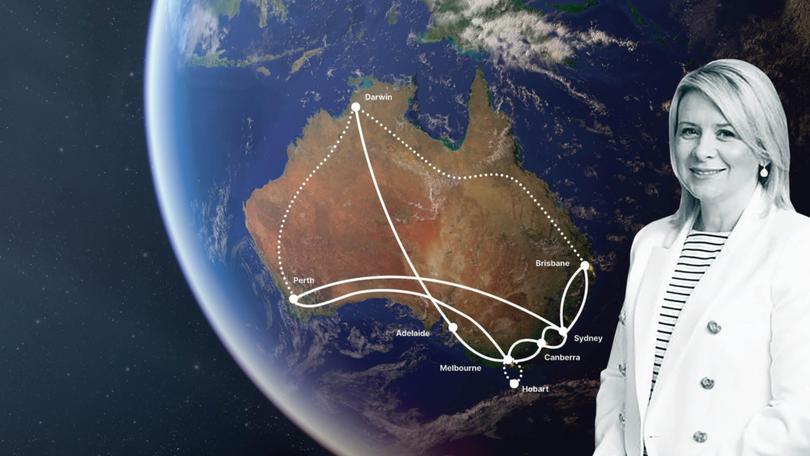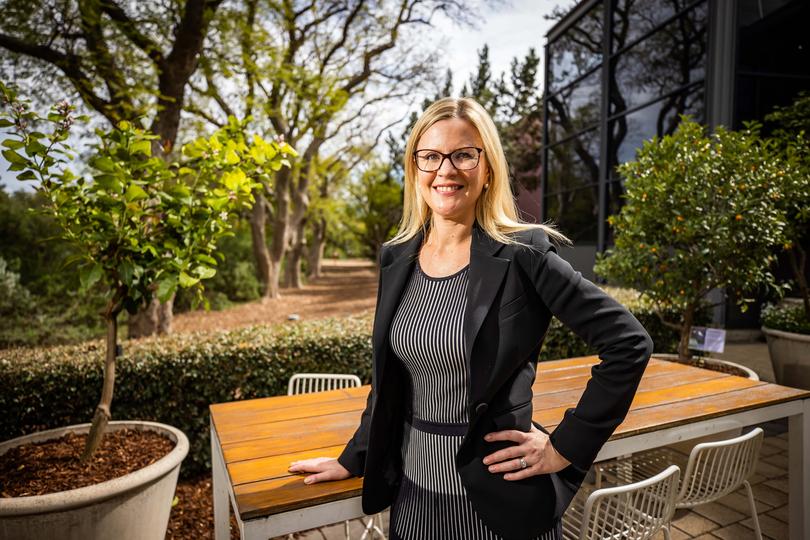Telstra leads industry criticism of red tape across governments hindering nation’s progress on major projects
Red tape, bureaucracy and duplicated requirements are derailing major projects and the nation’s progress, according to Telstra and other industry leaders.

Businesses and telecommunications companies have warned red tape and bureaucracy is stymieing the nation’s progress as critical projects are being further delayed by duplication and competing regulatory interests.
Economists said regulatory approval processes needed to be streamlined to increase speed and consistency in regulatory decision-making and reduce the overall cost of business.
Telstra’s infrastructure company InfraCo is currently laying 14,000km of fibre cable across the nation as part of a high-capacity network between major cities to ensure Australia’s internet connectivity remains competitive with Asia.
Sign up to The Nightly's newsletters.
Get the first look at the digital newspaper, curated daily stories and breaking headlines delivered to your inbox.
By continuing you agree to our Terms and Privacy Policy.But the rollout has been hindered as the telco navigates local, state, territory and commonwealth government regulations as well as Indigenous land councils, national parks and private lands.
InfraCo national infrastructure projects executive Kathryn Jones said linking Perth to Sydney as part of the intercity fibre network alone required laying 3,700km of fibre across three states, countless local governments, traditional lands, national and state parks and private property.
Ms Jones said the company was working through different combinations of engagements, surveys, reports, applications, agreements, negotiations and approvals from landowners, who all had different timelines.
“We recognise that it’s critical to engage with all stakeholders, ensure that processes are correctly followed and that all concerns and issues are addressed,” she said.
“At the same time, it’s also true that the overlapping, multilayered approvals are making it very challenging to build infrastructure efficiently.
“There is an opportunity here to rethink how national projects, like this one that are critical to Australia’s future connectivity, can be rolled out more efficiently.”
InfraCo is currently engaging with 50 cultural heritage groups and about 25 road, rail and utility companies as well as state and territory governments.

Deloitte Access economic lead partner Pradeep Philip said infrastructure projects faced a myriad of hurdles as the commonwealth and local and state governments all had different concerns.
“There are often legitimate reasons why regulations come into place but the key is to reduce the cost of investment,” he said.
“Given that this is such a high priority and the timeframe is short, we would see streamlining consistency and speed as an important area of microeconomic reform that has to happen if we are to meet the broader economic and environmental objectives.”
In Queensland, gas companies are now required to report gas data and forecasts to the Australian Competition & Consumer Commission, the Australian Energy Regulator and the Australian Energy Market Operator.
Meanwhile, offshore, the gas and oil industry is now required to undergo approval processes for offshore oil and gas decommissioning with both the National Offshore Petroleum Safety and Environment Management Authority and the Commonwealth Department of Climate Change, Energy, the Environment and Water.

Both processes consider offsite disposal and recycling, potential impacts on the environment, the removal of hazardous material, worker safety, engineering and technical feasibility and the protection of the marine environment.
Australian Energy Producers chief executive Samantha McCulloch said the current regulatory framework was riddled with meaningless red tape and duplication between governments and agencies.
“Efficient regulations are critical to Australia’s economic and energy security, ensuring project proponents and stakeholders are treated fairly so ventures can proceed with any identified risks addressed or managed,” she said.
“However, unfortunately too often regulation is poorly designed as we have seen with the broken offshore environmental approvals system, leaving the oil and gas industry, stakeholders and the regulator itself unclear about how the system works.”
Mining projects in Australia are required to undertake environmental assessments at the state and territory level before repeating a similar process with the federal government.

